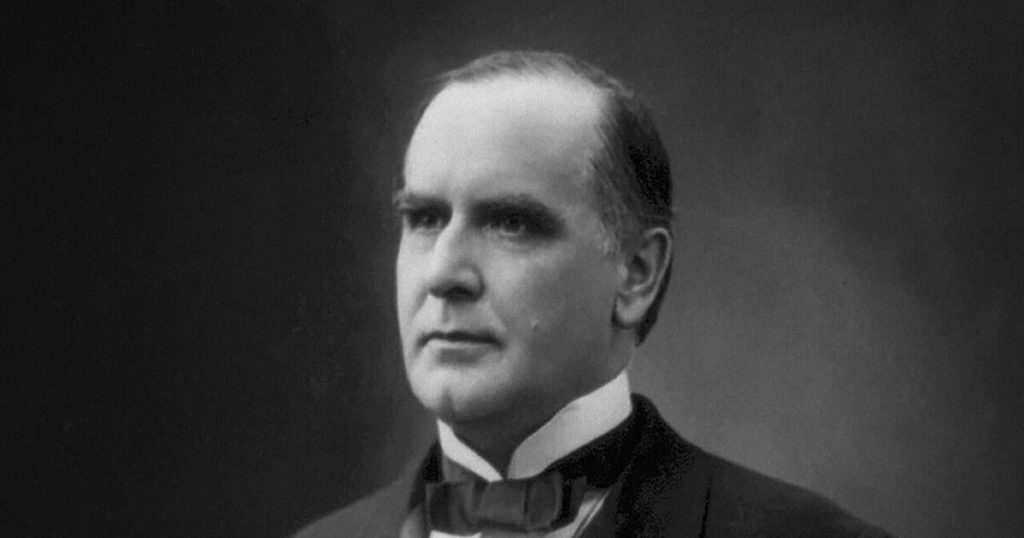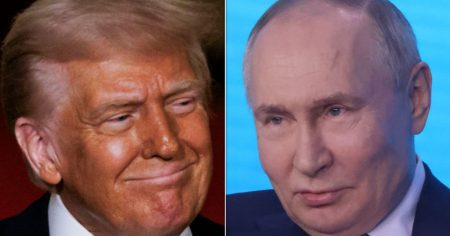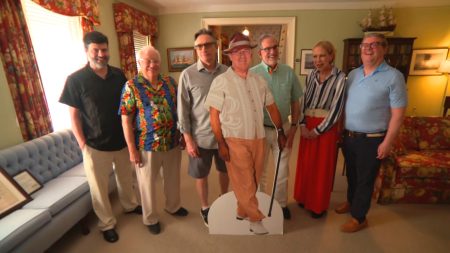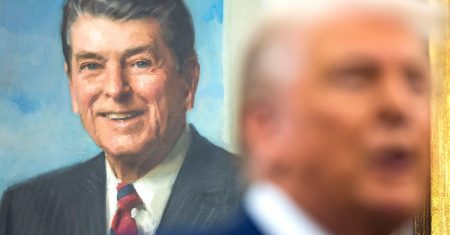A Presidential Legacy in Canton, Ohio
One of President Trump’s first executive orders in his second term was reverting the name of Alaska’s highest peak, Denali, back to Mount McKinley. However, this decision sparked curiosity about the man behind the name: William McKinley, the 25th President of the United States. In Canton, Ohio, nestled between Interstate 77 and the Pro Football Hall of Fame, lies an impressive mausoleum dedicated to McKinley. This grand structure, part of the McKinley Presidential Library & Museum, is where McKinley and his wife, Ida, are entombed. Visitors to the museum are greeted by an animatronic figure of McKinley, who welcomes them with a warm remark about hosting visitors once again. According to Kim Kenney, the museum’s executive director, the animatronic figure is designed to closely resemble McKinley’s real-life appearance.
A Life of Kindness and Legacy
When asked what people commonly know about McKinley upon visiting the museum, Kenney immediately pointed to his tragic fate: "It’s that he was one of the four presidents who was assassinated." While this dark distinction is often what first comes to mind, McKinley’s life was far more complex and nuanced. University of Akron history professor Kevin Kern describes McKinley as a "super-nice guy" who was consistently kind, polite, and proper. McKinley’s early rise to prominence came as a Civil War veteran and Ohio Republican congressman, where he became known for his singular focus on tariffs. His passion for tariffs was so intense that people nicknamed him the "Napoleon of Protection." The 1890 McKinley Tariff Act, which raised rates as high as 50%, became a defining moment in his political career, though it ultimately led to his loss of Congress. Undeterred, McKinley went on to become governor of Ohio and later president.
A Presidency of Economic Focus and International Expansion
McKinley’s presidency, which began in 1896, was initially marked by his continued focus on the economy. However, the theft of the spotlight came when the Battleship Maine exploded off the coast of Spanish-colonized Cuba. Despite unclear circumstances surrounding the explosion, war fever swept the country. McKinley, known for his cautious approach, faced criticism for his hesitancy to act. Theodore Roosevelt, then McKinley’s Assistant Secretary of the Navy, famously mocked McKinley’s indecision, saying, "McKinley has the backbone of a chocolate éclair." Despite this criticism, McKinley eventually embraced the call to action, and within four months, the Spanish-American War was over. The U.S. emerged victorious, gaining control of Cuba and acquiring Puerto Rico, Guam, and the Philippines. That same year, the U.S. also annexed Hawaii, marking the birth of an American empire.
A Complex Vision for American Expansion
McKinley’s vision for this newfound empire was rooted in the idea of bringing the "American promise" to these territories, rather than mere self-aggrandizement. However, this idealistic stance was complicated by the harsh realities of the Philippine occupation, which resulted in the deaths of as many as 250,000 civilians. This conflict, often referred to as "Vietnam before Vietnam," was marked by brutal guerrilla warfare and widespread suffering. Despite these controversies, McKinley’s presidency was wildly popular, and he won re-election in 1900 by a landslide.
A Tragic End and Lasting Legacy
McKinley’s second term was cut short when he was assassinated by anarchist Leon Czolgosz during the 1901 Pan-American Exposition in Buffalo, New York. When Czolgosz shot McKinley, he could have easily been lynched by the outraged crowd. Instead, McKinley intervened, saying, "Go easy on him, boys!" This final act of compassion was emblematic of his character. McKinley’s death sent shockwaves across the nation, prompting a public response comparable to the Kennedy assassination. In 1907, the McKinley National Memorial was dedicated to his memory, drawing an estimated crowd of 50,000. For years, schools across the country displayed McKinley’s portrait, draped in black crepe, as a testament to the profound respect and admiration he inspired.
Remembering William McKinley’s Enduring Impact
Today, McKinley’s legacy is a blend of contradictions: a kind and proper man who presided over both economic prosperity and international conflict. While his assassination cemented his place in history, his life story reveals a far greater depth. From his early days as a tariff-focused congressman to his role in shaping an American empire, McKinley’s presidency was a pivotal moment in U.S. history. His memorials, from the mausoleum in Canton to the $500 bill that bears his image, serve as reminders of a man whose legacy defies easy categorization. As visitors flock to the McKinley Presidential Library & Museum, they continue to uncover the layers of a president whose life was marked by both remarkable achievements and profound tragedy.















